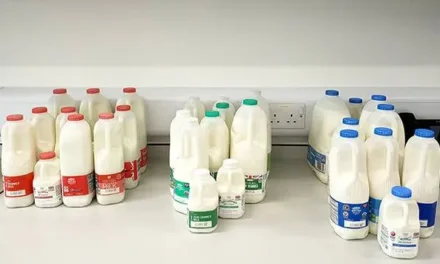Coffee is the most popular beverage in the UK with the number of regular coffee drinkers overtaking regular tea drinkers for the first time ever in the UK in 2023.
Research by the Centre for Economics and Business Research shows that an average of 95 million cups of coffee are drunk in the UK per day.
One popular type of coffee is a cappuccino, an espresso-based coffee drink with a steamed milk foam. Cappuccinos have been long associated with Italy yet the name itself originates from Austria where the colour of Capuchin friar’s robes inspired the name. Cappuccinos themselves did not become popular outside of Italy until the 1930s and they are now a staple coffee shop order.
A caffeine buzz
Coffee is most famous for its ability to enhance our alertness, productivity and reduce reaction time. On the other hand, drinking coffee later in the day can increase the amount of time it takes you to fall asleep and also reduce the quality of your sleep.
Some people may find it best to limit consumption as it gives them a dodgy stomach or induces anxiety, particularly at high doses (more than 200 milligrams per occasion or more than 400 milligrams per day). This is related to our individual rate of caffeine metabolism. People who metabolise caffeine slowly are more likely to experience the adverse effects.
It’s also important to note that in pregnant women, caffeine intake should be limited to 200milli grams/day (which is approximately 2 cups) as too much can increase your risk of pregnancy complications, such as low birthweight, and even miscarriage.
Plenty of polyphenols
Aside from the nice boost a cup of coffee can give us, it is full of bioactive compounds such as caffeine, polyphenols and diterpenes which have potentially beneficial antioxidant, anti-inflammatory and anticancer effects.
Interestingly, coffee and tea are the biggest contributors to polyphenol intake in the UK. Polyphenols are compounds which naturally occur in fruits, vegetables and cereals. They have antioxidant properties in the body which can offer some protection against some cancers, cardiovascular diseases, diabetes, osteoporosis and neurodegenerative diseases. Drinking coffee has been linked to an improved gut microbiome, lower risk of cardiovascular disease and type 2 diabetes.
Here at the Quadram Institute we’re exploring how plant bioactives impact our gut microbiome and effect our health. In our Food and Nutrition team we have previously run a study looking into the effects of high and low plant bioactive diets.
Monitoring the nutrition of milk and plant based alternatives
We all know that creamy, sweet taste sensation of a well-made cappuccino. Steaming the milk creates tiny bubbles which gives the cappuccino its characteristic velvety texture.
Traditionally, they are made from cows’ milk. At our Food and Nutrition National Bioscience Research Infrastructure (F&N NBRI) we record and monitor the nutrition of foods in the UK, including dairy milk.
In recent years, use of plant-based milk alternatives among vegans and non-vegans alike has risen dramatically.
The choice of milk or plant-based alternative affects how well the milk or milk alternative foams. Foam is created by dispersing air bubbles through the liquid with the protein content of the milk helping to set the foam whilst a higher fat content reduces the creation of foam. Researchers at the Quadram Institute are studying the nutrition of plant-based milks and how they are digested.
When opting for plant based alternative milks, ensure they are fortified with calcium, vitamin D and vitamin B12 so you are not missing out on key nutrients.
If you’d like to learn more about our work on the nutrition of food and drinks check out the Food and Nutrition Bioscience Research Infrastructure website.





